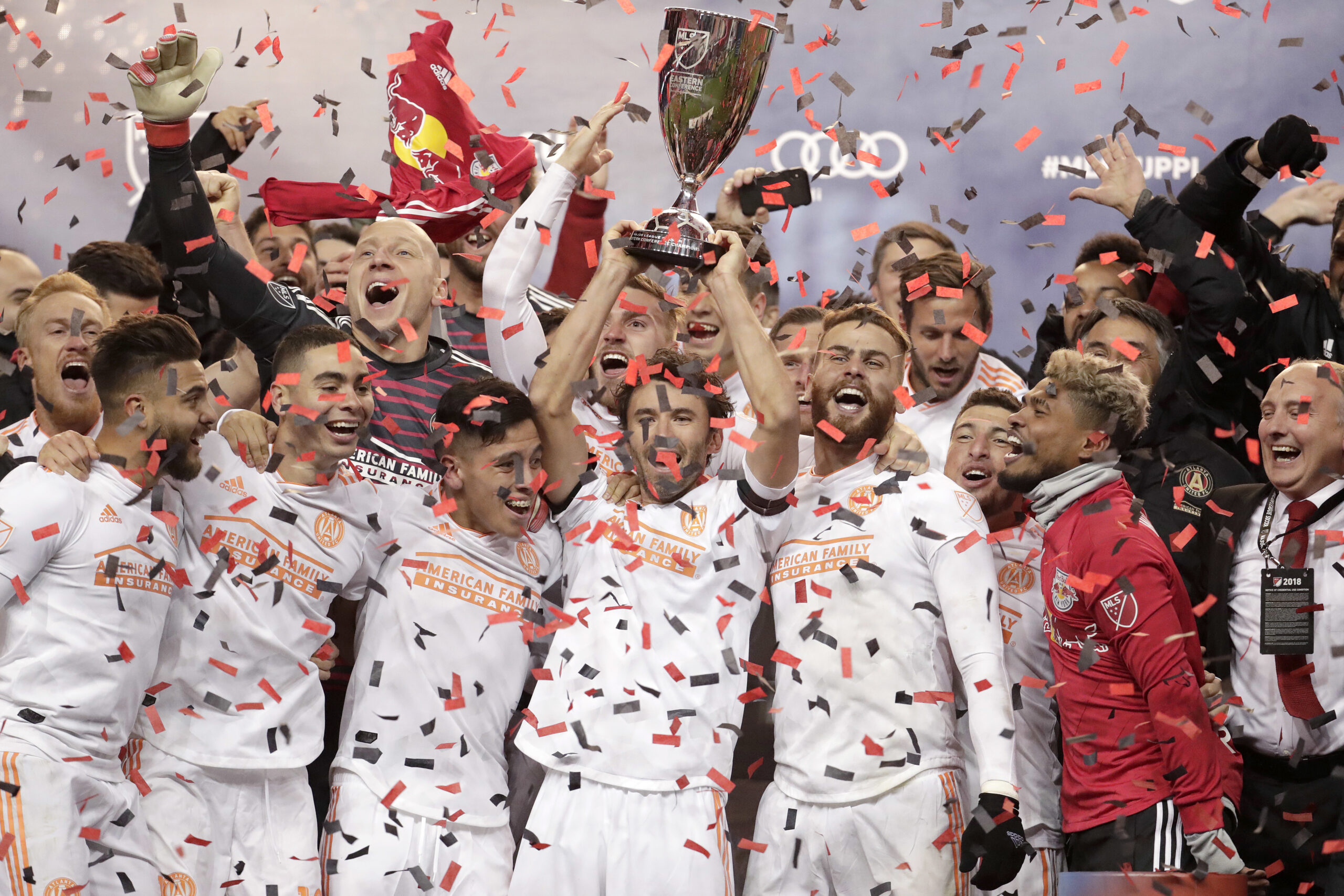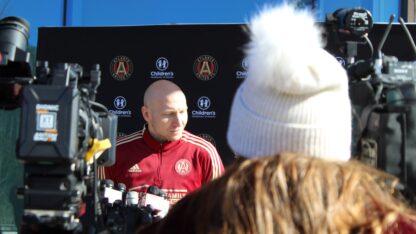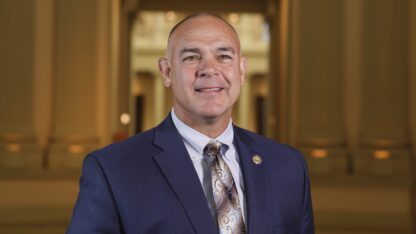If you think about sports in the south, football comes to mind. Not soccer.
But Saturday’s Major League Soccer championship is between the Portland Timbers and Atlanta United. Both teams are known for enthusiastic fanbases and both have sold out all their regular season games since inception.
But the Georgia team, just in its second season, is already setting a new standard for pro-soccer attendance. On a Saturday in June, the world’s most-attended soccer game wasn’t at the World Cup.
It was in Atlanta.
The team has eight of the top single-game attendance records in Major League Soccer history.
That might sound surprising. But not to those who go to Atlanta United games and often fill a 72,000 seat stadium. Seemingly overnight, the team’s flags have cropped up on porches around the city. And that success is no accident.
Last week, thousands showed up at a watch party to cheer the team playing a semi-final game in New York. The fan energy was electric and before the team even left the field that night, Saturday’s championship game at Mercedes Benz Stadium sold out.
Again, that’s about 72,000 people. Keep in mind, the average attendance of an American pro soccer game is 22,000. Atlanta United’s numbers are better than some professional football crowds.
But how?
Well, the games are fun. And that’s by design. Atlanta United’s owner and Home Depot co-founder, Arthur Blank also owns the Falcons and opened the brand new stadium for the two teams last year. But United games don’t feel like they’re in a football stadium. All the signage is digital. There’s barely a trace of the Falcons on a soccer day.
Catie Griggs, vice president of business operations for Atlanta United, said that was a deliberate business decision.
“So we have the ability to truly shift the physical infrastructure of the stadium to accommodate a different sport in a way that is truly meaningful and authentic, in a way that’s not simply an afterthought,” she said.
The stadium actually loses 2,000 seats along the field for soccer games, to make room for the wider pitch.
All this has shown fans that soccer is a priority. Another business decision that’s building goodwill? Cheap concessions. Hot dogs are $2. At the baseball stadium across town? They’re $6.50.
And then there’s the mechanics of the team. Blank hired management with global soccer pedigrees, including manager Gerardo “Tata” Martino of Barcelona and the Argentina National Team and president Darren Eales of the English Premier League. They, in turn, attracted talented, young players and fostered an exciting, aggressive style of soccer.
But okay. A fun stadium and good players who are winning games. Still, where are all these southern fans coming from?
Matt Stigall started a petition back in 2011 to bring pro soccer to Atlanta and is the founding president of Terminus Legion, one of the team’s fan groups.
Even he is surprised.
“I was never expecting 70,000 people selling out every game, breaking records upon records, and really setting a new standard for the league,” he said.
“And having all eyes of the world look and be like holy crap, Atlanta is a soccer town. And there’s no question: Atlanta is a soccer town.”
Another reason for the fanbase is the clean soccer slate Atlanta United has been able to take advantage of.
“There’s a lot of people that I know that moved to Atlanta recently, brought all their original teams in the other sports, whether it’s NFL, NBA, Major League Baseball,” he said. “The team that their families have been fans of for generations. They don’t have a soccer team.”
Griggs agreed.
” All of those fans who are coming to Atlanta who perhaps are rooting for the Braves unless they’re playing the Cubs, have those other teams where yes they like and support their Atlanta teams but they’ve got that club they’ve grown up with, we don’t have any of that.” Atlanta United was, she said, able to start with a “white piece of paper.”
And the team, Stigall said, has done everything right in terms of activating its fans and including them along the way.
Doug Roberson, who covers Atlanta United for the Atlanta Journal-Constitution said there was also a market among Atlantans who remember the heyday of the Atlanta Chiefs, a professional soccer team from the 1960s and 1970s which actually won the city’s first sports championship in 1968. Those Atlantans, he said, are now raising their children and bringing them to games, too.
Plus, there’s the general rise in American soccer popularity.
Soccer television viewership is up, while football viewership is shrinking. Soccer games don’t stop for commercial breaks and the games are simply shorter. It’s an easy spectator sport to pick up and follow.
These are all reasons for the trend to continue, said Matt Doyle, a columnist for MLS. “35 years ago when I was growing up, Major League Baseball was the undisputed, number one sport among all age groups,” he said.
But today, baseball is number three, behind basketball and football. And soccer is soon expected to move into third place ahead of baseball.
“I do think it’s a serendipitous basically collision of time, opportunity, market where fundamentally our role is to not screw it up,” Griggs said. “I think this is really an exciting time for the sport of soccer, an exciting time for Atlanta, and we’re very well-positioned to ride this wave.” Her goal, she said, is to take Atlanta to global prominence. “I don’t think we’re anywhere near the top of where we can be in Atlanta, much less the U.S. or globally.”
But Atlanta sports fans have a reputation to disprove: that they only support teams when they’re winning. The city’s basketball, baseball and football teams are well aware of that. Grigg’s response?
“So we’ve been told.”
No one knows if the fan stereotype will hold true here until Atlanta United starts losing.










